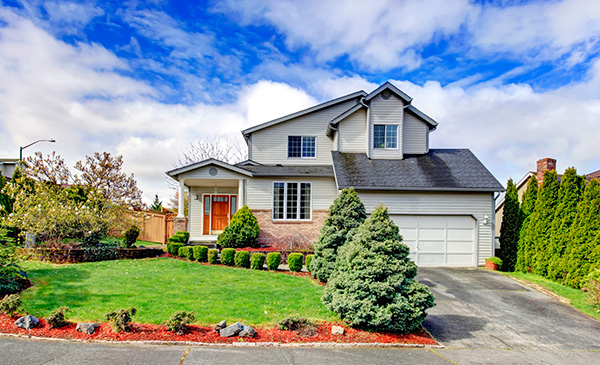Mortgage 101: How Interest-Only Mortgages Work and Why They’re A Good Solution for Some Buyers
 Whether you’re a first-time homebuyer or an experienced real estate investor, if you are planning to borrow funds to buy a home you will want to choose the right mortgage product. In today’s blog post we’ll explore how interest-only mortgages work and why they’re the perfect choice for some homebuyers.
Whether you’re a first-time homebuyer or an experienced real estate investor, if you are planning to borrow funds to buy a home you will want to choose the right mortgage product. In today’s blog post we’ll explore how interest-only mortgages work and why they’re the perfect choice for some homebuyers.
How Interest-Only Mortgages Differ From Conventional Ones
As the name suggests, interest-only mortgages are loans where you are only required to pay off the interest portion of the loan each month for some specific term. The length of these loans can be up to ten years, although five or seven is the most common. Once this period is over, you will have some options. Some choose to refinance their mortgage into a new term; others will make a lump-sum payment to pay off the balance. The most important item of note is that during the interest-only period, no principal is paid off unless you pay a bit extra.
The Pros And Cons Of Interest-Only Mortgages
Interest-only mortgages are a popular choice because of their many upsides. Your monthly payments are almost certainly going to be far lower during the interest-only period. This is because you’re not responsible for paying down the principal of the loan. A lower monthly payment frees up money that you can use for other purposes, such as investing. Also, your entire monthly payment during the interest-only period should be tax deductible, which may contribute to a refund each year.
Note that there are some potential downsides to interest-only mortgages as well. For example, if your mortgage interest rate is adjustable, you can end up paying more in interest than if you had locked in. You also need to stay disciplined financially. Once the interest-only period ends, your monthly payment may increase significantly to cover both interest and principal.
Who Should Consider An Interest-Only Mortgage?
Interest-only mortgages are a good fit for those individuals or families where you are confident that your income is going to grow significantly in five or ten years. Alternatively, if your income is somewhat sporadic and you want the option of paying lower payments in some months and more substantial payments in others. The key point is that these mortgages offer flexibility that other mortgage products do not.
As you can see, interest-only mortgages are an excellent choice in certain circumstances. To learn more about how an interest-only mortgage might be right for you, contact our professional mortgage team today. We are happy to share our experience to find mortgage financing that perfectly suits your needs.


 Are you and your spouse starting to move into your retirement years? If so, you already know that you are going to need a solid financial plan for when your primary sources of income are no longer bringing money in. If you have invested in your retirement, you might be all set. However, what if your house makes up the majority of your net worth?
Are you and your spouse starting to move into your retirement years? If so, you already know that you are going to need a solid financial plan for when your primary sources of income are no longer bringing money in. If you have invested in your retirement, you might be all set. However, what if your house makes up the majority of your net worth?